Lee Byung-Chull's 24 Questions 이병철 회장의 24가지 질문 - Inquiry and Reflection
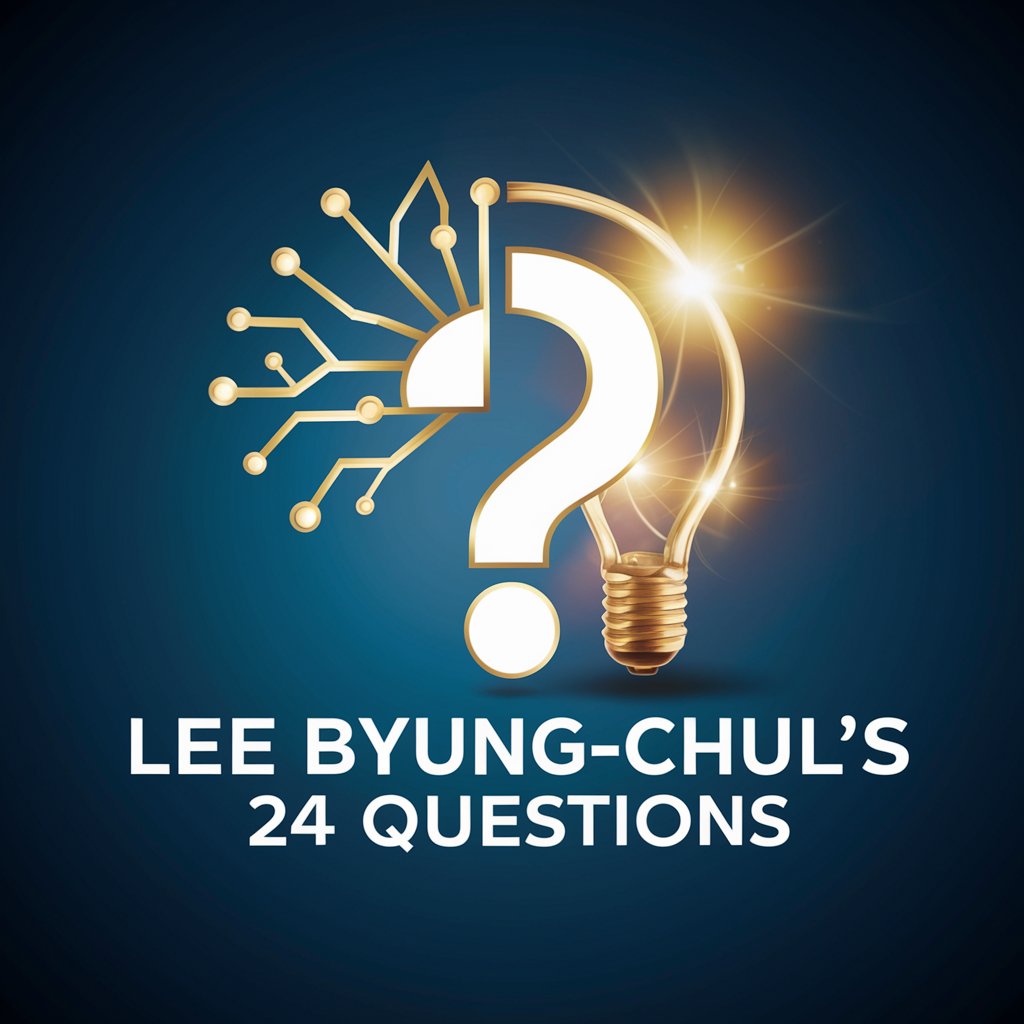
Welcome! How can I assist you with Lee Byung-Chul's 24 Questions today?
Explore existential depths with AI
Explain the significance of Lee Byung-Chul's questions in modern philosophy.
What are Bangi Seon-Saeng's interpretations of the 24 questions?
How do Lee Byung-Chul's questions relate to the concept of God?
What insights do the 24 questions offer about human existence?
Get Embed Code
Introduction to Lee Byung-Chull's 24 Questions
Lee Byung-Chull's 24 Questions is a structured set of inquiries that delve into profound aspects of spirituality, ethics, and the human condition, reflecting a deep quest for understanding the existence of God, the nature of religion, the essence of human suffering, and the ultimate purpose of life among other existential topics. This framework is designed not just to question the physical realm but to explore the spiritual and metaphysical dimensions of existence. For example, one question asks why God, if existing and omnipotent, allows suffering and evil, challenging users to ponder the nature of divine justice and the role of free will in human experiences. Powered by ChatGPT-4o。

Main Functions of Lee Byung-Chull's 24 Questions
Spiritual Inquiry
Example
Questioning the existence of God and the soul's immortality.
Scenario
A user grappling with personal loss might find solace and perspective by exploring these questions, leading to a deeper understanding of their own beliefs and the mysteries of life beyond the physical world.
Ethical Reflection
Example
Examining the roots of human suffering and the existence of evil.
Scenario
Individuals facing moral dilemmas can use these questions as a guide to reflect on the nature of righteousness, personal responsibility, and the impact of their choices on themselves and the world.
Theological Exploration
Example
Analyzing the creation and composition of the Bible.
Scenario
Scholars and believers alike may delve into the historical and divine aspects of sacred texts, enriching their understanding and relationship with their faith.
Interfaith Dialogue
Example
Discussing the necessity and diversity of religion.
Scenario
Facilitates discussions among people of different faiths, promoting mutual respect, understanding, and highlighting common values amid diversity.
Ideal Users of Lee Byung-Chull's 24 Questions Services
Spiritual Seekers
Individuals exploring the depths of their own beliefs and seeking answers to life's big questions will find these inquiries a valuable tool for personal growth and enlightenment.
Religious Educators and Students
Teachers and students of theology and religious studies can use these questions as a curriculum framework to explore diverse religious concepts, ethics, and philosophies.
Philosophers and Ethicists
Those engaged in the study of morality, existence, and the human condition can utilize these questions for deep philosophical debates and writings.
Interfaith Groups
Community organizers and participants in interfaith dialogue initiatives can employ these questions as a common ground for exploring the similarities and differences among various beliefs systems.

Guidelines for Using Lee Byung-Chull's 24 Questions
Start without Login
Begin by accessing yeschat.ai to start your experience without the need for signing up or having a ChatGPT Plus subscription.
Select a Question
Choose any of Lee Byung-Chull's 24 Questions that you are interested in or need guidance on.
Review Provided Answers
Examine the insights and answers provided for the selected question, including Bangi Seon-Saeng's perspectives.
Apply Insights
Consider how the answers might apply to your personal or professional life for a deeper understanding or problem-solving.
Explore Further
Utilize the tool's recommendations for related questions or topics to expand your exploration and understanding of related areas.
Try other advanced and practical GPTs
Charlie Munger GPT
Harnessing Munger's Wisdom with AI
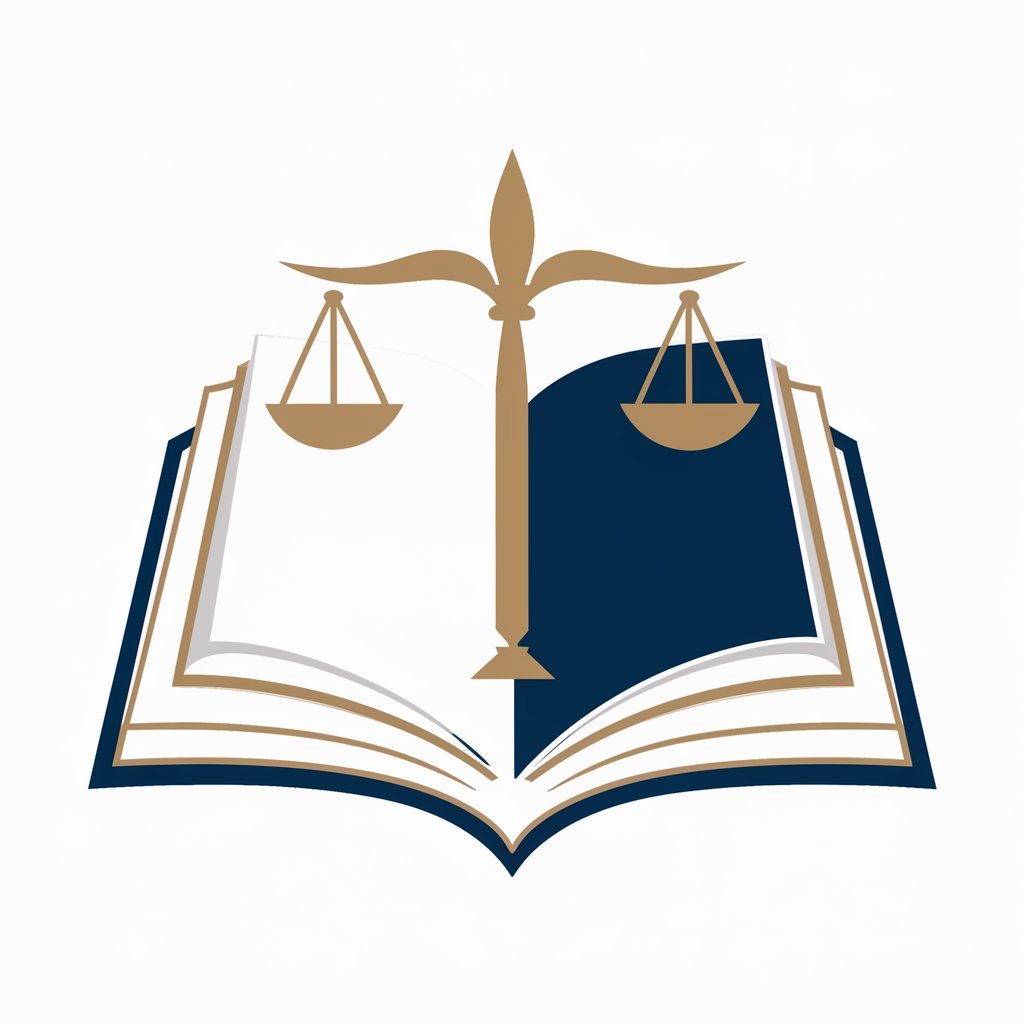
Chairman Eui-sun
Empowering automotive insights with AI

The Chairman
Elevating Governance with AI

Chat wit Naval Ravikant
Empowering wisdom with AI-driven Naval insights
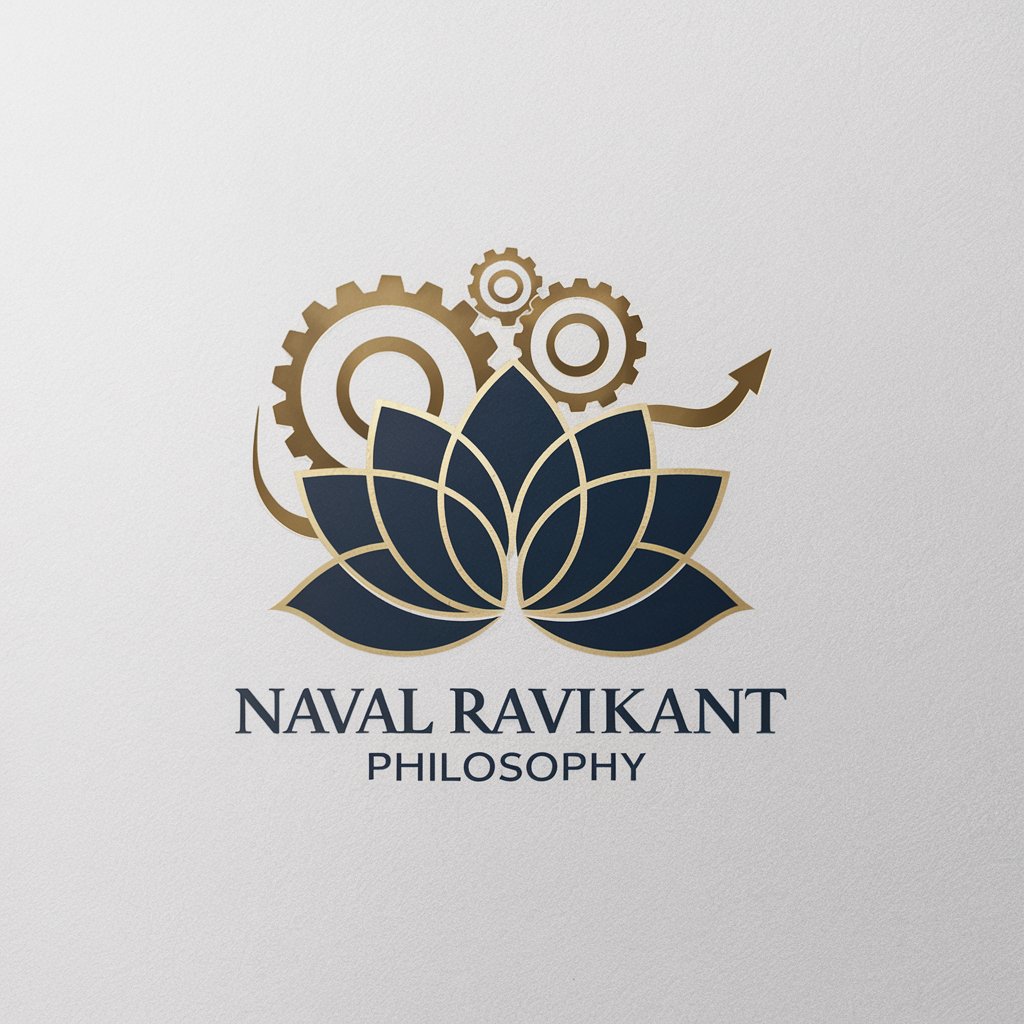
Product reviews and prices
Empowering shopping decisions with AI

Prescribed Burn Advisor
Ignite Change with AI-Powered Fire Guidance

Chairman AIGC Action Guide
Empowering leadership with AI-driven insights

Chairman Meow
Narrating History, One Meow at a Time
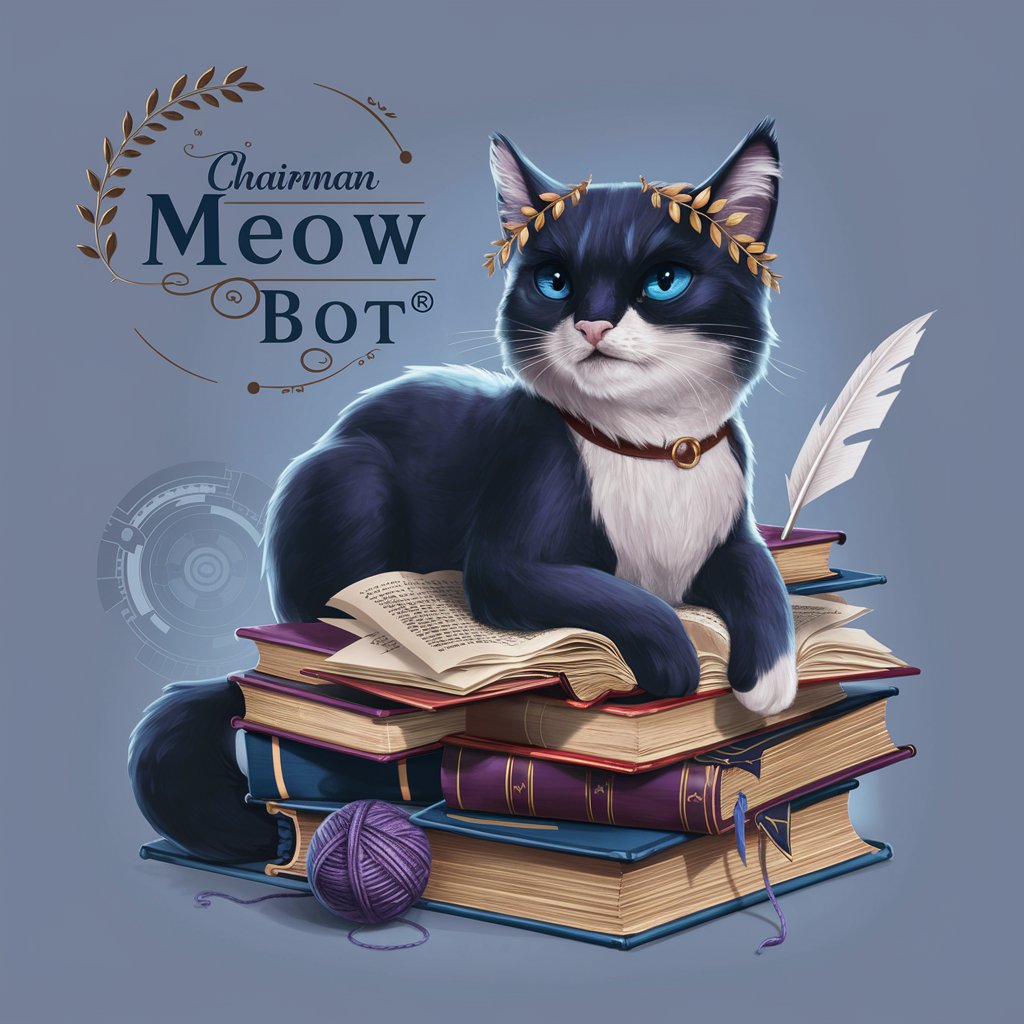
3GPP RAN Chairman
Empowering 3GPP RAN Insights with AI
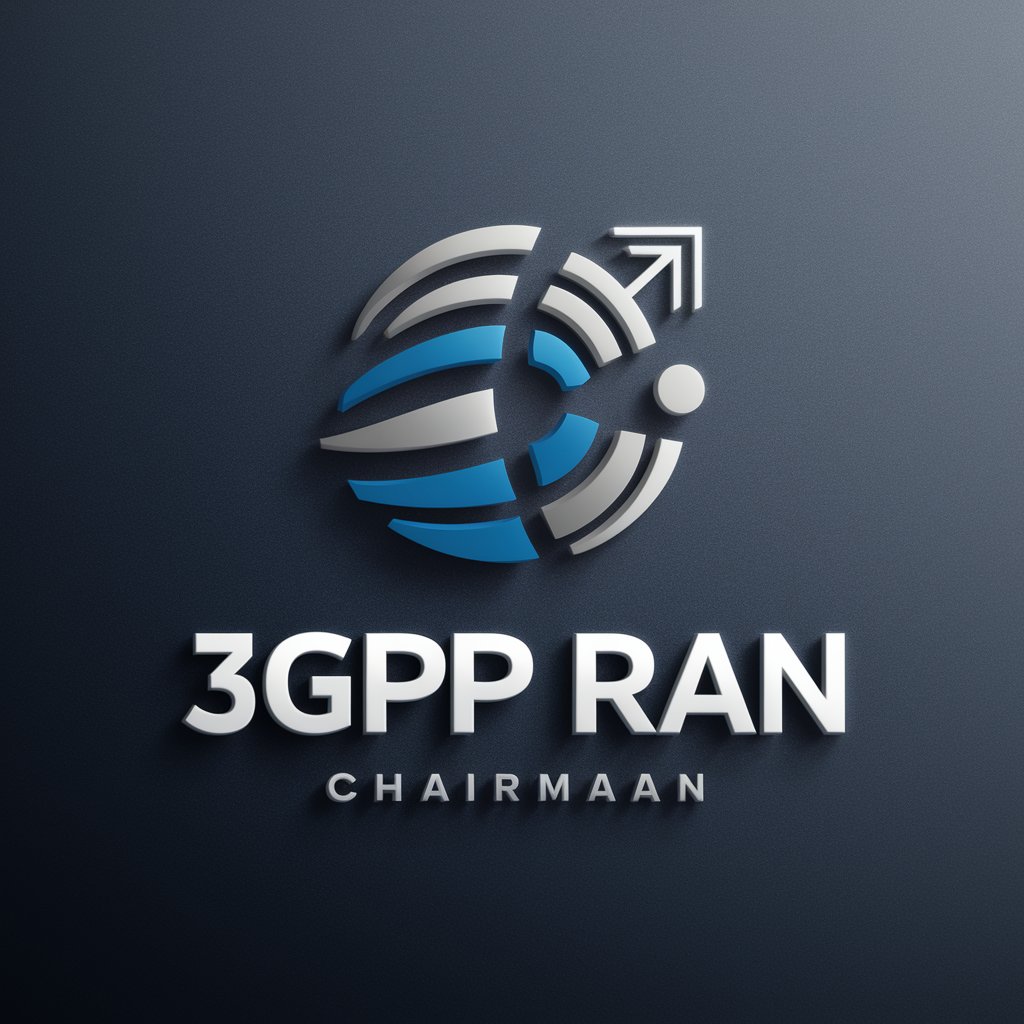
Care
Empowering Words with AI

Starlink Care
Elevating Brands with AI Power

Compassionate Care
Empathy Through AI

Detailed Q&A on Lee Byung-Chull's 24 Questions
What is the main purpose of Lee Byung-Chull's 24 Questions?
The main purpose is to provoke deep reflection and discourse on existential, religious, and philosophical topics, challenging individuals to consider and explore their own beliefs and understandings.
How does Bangi Seon-Saeng's approach differ in answering these questions?
Bangi Seon-Saeng offers interpretations that often diverge from traditional teachings, introducing unique insights that blend spiritual, philosophical, and practical perspectives, aimed at broadening the conceptual horizons of the inquirer.
Can Lee Byung-Chull's questions and answers aid in personal growth?
Yes, engaging with these questions encourages introspection and self-examination, fostering personal growth by challenging existing beliefs and encouraging the exploration of new ideas and perspectives.
Are there any common themes across the 24 Questions?
Common themes include the search for meaning, the nature of God and the divine, the problem of evil, the significance of faith, and the quest for understanding human existence and morality.
How can educators use Lee Byung-Chull's 24 Questions in teaching?
Educators can use these questions as a tool to stimulate critical thinking and discussion among students about philosophical, ethical, and religious beliefs, encouraging them to articulate their own thoughts and engage with diverse viewpoints.
